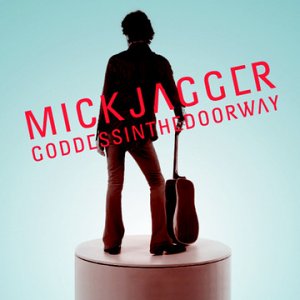
- Format: MP3

Mick Jagger had struggled with launching his solo career for over 15 years when he unleashed Goddess in the Doorway. Although he was one of the most famous men on earth, he couldn't separate himself from the Stones no matter how hard he tried, and he tried so hard that many of his struggles appeared desperate. Whereas the Stones incorporated reggae, disco, and punk effortlessly into their core sound, Jagger's attempts to sound contemporary came across as him desperately flailing about to stay hip. This was the curse of his solo career, from the outset on She's the Boss, through the generally strong Primitive Cool, which was sunk when he decided to perform aerobics on "Let's Work." Jagger briefly shed this complex on 1993's excellent Wandering Spirit — along with Keith Richards' Talk Is Cheap, one of the two genuine gems in the Stones' solo catalog — which raised hopes for Goddess, since he seemed willing to bare his soul and keep the music direct the last time out, and the Stones' efforts that followed also shared similar qualities. And that's why Goddess is rather disappointing (of course, it doesn't help that such peers as Paul McCartney, Bob Dylan, and Elton John delivered stellar albums within months — or even on the same day — as Goddess). This finds Jagger once again striving to sound sleek, commercial, and hip, winding up with an album that could have been released in 1987. This is shiny, impeccably produced mainstream rock, occasionally blessed with Jagger's falsetto or sly turn phase, but dominated by its self-conscious, middlebrow attempt to cover all the bases: slinky dance tunes, some contemporary rhythms, hints of the Stones, tamed raunch, and frothy pop songs dressed up to have the appearance of grit. This all makes it sound worse than it actually plays, since it is all professionally done and rather melodic, but it never escapes Jagger's nervous desire to sound contemporary — an instinct that backfires on him, since all the studio gloss embalms the record, making it sound like an artifact rather than a vibrant effort from a veteran with something to say. It's the kind of record that you expect from somebody who's been making records for nearly 40 years and still wants to remain hip, and it's not bad on that level, but when it stands next to the brilliant albums by Dylan, Sire Paul, and Sir Elton in 2001 — records where the veterans didn't care about being hip and wound up returning to what they did best, confirming why they're legends — it's all too clear what Goddess in the Doorway is missing.